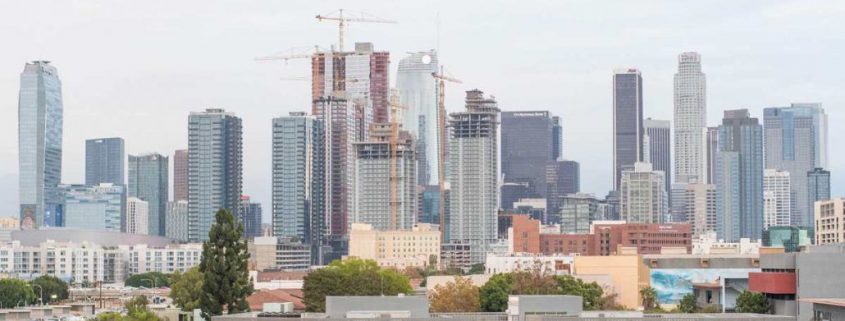LA’s homeless crisis is beyond a state of emergency

Many who do not live in Los Angeles think the city is paradise. They believe all Angelenos do is drink boba in Little Tokyo, dance in West Hollywood and catch some waves in Santa Monica. Are Angelenos immune to what life throws at them? How is it that our families are any less dysfunctional than others? Our heartbreaks less painful? Our diseases less fatal?
For the past few years, many Angelenos have been living in a “paradise” of tent cities. The homeless crisis in L.A. has now become a humanitarian one. According to the Los Angeles Homeless Services Authority, an estimated 50,000 to 60,000 persons can be found experiencing homelessness on a given night.
In an op-ed written by the Sacramento mayor Darrell Steinburg, the deaths among those who are unsheltered in L.A. are up 76% over the last five years. Desperate for solutions, L.A. officials such as County Supervisor Mark Ridley-Thomas and City Councilman Joe Buscaino have recently called upon California Gov. Gavin Newsom to declare the L.A. homelessness crisis a state of emergency. Even though it sounds like a solution, this cavalry call is simply a press release.
Yes, the declaration of a state of emergency sounds as if it would hasten and assist efforts to solve the crisis that pervades the sidewalks, riverbeds and parks of L.A. But that’s only if that declaration had come five or so years ago. Through Proposition HHH, the city has already invested $1.2 billion in housing those affected by homelessness and those who are low-income. Another legislative act, Measure H, will allow L.A. to spend several billions of dollars on services and rental assistance.
Even more, declaring a state of emergency does not allow for tapping into federal funds. According to Federal Emergency Management Agency, cities and counties are the only entities that obtain federal emergency aid, not the state. Further, the Trump administration has already denied a request by Newsom for more housing vouchers for people experiencing homelessness, and this is not the first time Newsom has hit roadblocks in attempting to solve a homeless crisis. Newsom served as the mayor of San Francisco from 2004 to 2011 before serving as lieutenant governor and now governor of California.
According to The Sacramento Bee, Newsom, as a member of the San Francisco Board of Supervisors, introduced the wildly controversial “Care Not Cash” policy a year before his first mayoral run in San Francisco. This policy stripped people affected by homelessness of the $400 welfare payments that came from the city in exchange for housing and treatment. Critics say that the policy made people experiencing homelessness worse off, put more strain on the city’s shelter system and fell short on the promise of supportive housing. All in all, Newsom failed to end the chronic homeless crisis in his own backyard. Homelessness grew under his watch, according to The Sacramento Bee. Over 6,000 people made up the homeless population of San Francisco during Newsom’s first term as mayor of San Francisco in 2004; that same population numbered 6,455 on Newsom’s first day as lieutenant governor in 2011.
L.A. must stop looking to the state capital for help when it is perfectly able to help itself. A declaration of a state of emergency is “political catwalking,” that will most assuredly not fix the homeless crisis. The bureaucratic energy taken by the L.A. City Council in calling on Newsom would be better utilized in actually fixing the problems themselves.
The ineptness of the city council has led many people, such as activist Scott Presler, in organizing 200 volunteers to clean up the trash that festers in homeless encampments while also handing out small meals to those affected by homelessness. “Stop talking, start doing,” Presler said as he and others cleared over 50 tons of garbage. Yes, the road to solving the crisis is an uphill battle, but local governments cannot look for a buttress from the state government. It’s up to local officials to be better at their jobs.
L.A. is preparing to host the 2028 Summer Olympics, and it is an Olympic feat itself to simply raise funds in order to adequately host the games. World media and national press will be around every juice bar and yoga studio in L.A. reporting on the happenings of the games and the conditions of the city itself. If the City of Angels wishes to save its reputation as a gleaming city upon a hill, then it must uplift its fallen angels. Cameras will be flashing like the golden sun that shines on the faces of those who have lost the golden dream.

